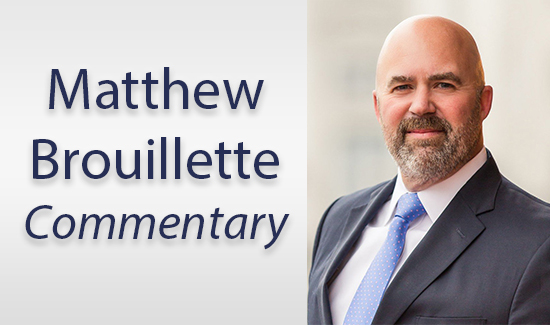On June 1, the U.S. Supreme Court issued a ruling in Glacier Northwest v. International Brotherhood of Teamsters Local Union No. 174. The case in question concerned whether Glacier, a concrete company, could sue the Teamsters due to striking employees’ intentionally destroying Glacier’s property by leaving concrete running in trucks when the workers walked off the job site. In an overwhelming 8-1 ruling, the justices upheld Glacier’s right to sue.
Writing for the majority, Justice Amy Coney Barrett noted, “By reporting for duty and pretending as if they would deliver the concrete, the drivers prompted the creation of the perishable product. Then, they waited to walk off the job until the concrete was mixed and poured in the trucks. In so doing, they not only destroyed the concrete but also put Glacier’s trucks in harm’s way.”
Justice Barrett wrote “that the NLRA does not shield strikers who fail to take ‘reasonable precautions’ to protect their employer’s property from foreseeable, aggravated, and imminent danger due to the sudden cessation of work.”
Multiple mainstream media outlets framed the ruling as a “defeat” for unions, calling it a “blow to organized labor” and predicting it “could chill labor strikes.”
Is it anti-union for unions to be held accountable for intentionally destroying property? Of course not – but unions have long deemed themselves to be above the law. And too often, lawmakers have agreed.
For example, for years a loophole in Pennsylvania law allowed parties in a labor dispute to “stalk, harass, or threaten to use weapons of mass destruction” without fear of consequence. In any other context, these actions are punishable under the state’s criminal code. But union disputes offered a free pass to menace others.
In 2015, Pennsylvania lawmakers ended this dangerous carve-out, over the objection of the state’s AFL-CIO.
The following year, the NLRB said that a company could not fire a picketing employee for shouting racial epithets to a group of replacement employees, many of whom were black. In any other scenario, this would be cause for dismissal, but unionism trumped antidiscrimination rules.
Ending these union exceptions shouldn’t be controversial. But the very fact that doing so prompts debate illustrates how some believe that unionism equals exemption from the laws that apply to everyone else.
One egregious exemption persists in Pennsylvania: the allowance that government unions – and only government unions – can use taxpayer-funded public-payroll systems to collect their political campaign contributions.
A fundamental doctrine of government ethics is that it’s illegal to use taxpayer resources for political purposes. Period.
But Pennsylvania allows the use of taxpayer dollars, which fund public payroll systems, to deduct both union dues and union political campaign contributions from government workers’ paychecks and send this money directly to union leaders. These union leaders then use the money for partisan political activities, including donating directly to political candidates.
No other private organization enjoys this privilege – and rightly so. Imagine if tax dollars were used to send contributions to the political-action arms of the NRA or Planned Parenthood. While individuals are free to contribute to these and other causes they support, private organizations are not permitted to use tax dollars to run their campaign fundraising operations.
So far this year, four states – Florida, Arkansas, Kentucky, and Tennessee – have enacted legislation ending this union loophole.
In Pennsylvania, Republican state Rep. Ryan Mackenzie of Lehigh County has introduced HB357, which would do the same here and finally ensure that unions are required to play by the same rules as everyone else.
Thankfully, unions can no longer intentionally destroy property without consequence. And unions can no longer stalk, harass, or threaten to use weapons of mass destruction as part of a labor dispute.
Now it’s time to ensure that unions can no longer use taxpayer dollars for their political activism.
Because no one – union leaders included – should be above the law.





